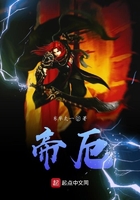Fragment #1 --
Proclus, Chrestomathia, i:
This (1) is continued by the epic called "Cypria" which is current is eleven books. Its contents are as follows.
Zeus plans with Themis to bring about the Trojan war. Strife arrives while the gods are feasting at the marriage of Peleus and starts a dispute between Hera, Athena, and Aphrodite as to which of them is fairest. The three are led by Hermes at the command of Zeus to Alexandrus (2) on Mount Ida for his decision, and Alexandrus, lured by his promised marriage with Helen, decides in favour of Aphrodite.
Then Alexandrus builds his ships at Aphrodite's suggestion, and Helenus foretells the future to him, and Aphrodite order Aeneas to sail with him, while Cassandra prophesies as to what will happen afterwards. Alexandrus next lands in Lacedaemon and is entertained by the sons of Tyndareus, and afterwards by Menelaus in Sparta, where in the course of a feast he gives gifts to Helen.
After this, Menelaus sets sail for Crete, ordering Helen to furnish the guests with all they require until they depart.
Meanwhile, Aphrodite brings Helen and Alexandrus together, and they, after their union, put very great treasures on board and sail away by night. Hera stirs up a storm against them and they are carried to Sidon, where Alexandrus takes the city. From there he sailed to Troy and celebrated his marriage with Helen.
In the meantime Castor and Polydeuces, while stealing the cattle of Idas and Lynceus, were caught in the act, and Castor was killed by Idas, and Lynceus and Idas by Polydeuces. Zeus gave them immortality every other day.
Iris next informs Menelaus of what has happened at his home.
Menelaus returns and plans an expedition against Ilium with his brother, and then goes on to Nestor. Nestor in a digression tells him how Epopeus was utterly destroyed after seducing the daughter of Lycus, and the story of Oedipus, the madness of Heracles, and the story of Theseus and Ariadne. Then they travel over Hellas and gather the leaders, detecting Odysseus when he pretends to be mad, not wishing to join the expedition, by seizing his son Telemachus for punishment at the suggestion of Palamedes.
All the leaders then meet together at Aulis and sacrifice. The incident of the serpent and the sparrows (2) takes place before them, and Calchas foretells what is going to befall. After this, they put out to sea, and reach Teuthrania and sack it, taking it for Ilium. Telephus comes out to the rescue and kills Thersander and son of Polyneices, and is himself wounded by Achilles. As they put out from Mysia a storm comes on them and scatters them, and Achilles first puts in at Scyros and married Deidameia, the daughter of Lycomedes, and then heals Telephus, who had been led by an oracle to go to Argos, so that he might be their guide on the voyage to Ilium.
When the expedition had mustered a second time at Aulis, Agamemnon, while at the chase, shot a stag and boasted that he surpassed even Artemis. At this the goddess was so angry that she sent stormy winds and prevented them from sailing. Calchas then told them of the anger of the goddess and bade them sacrifice Iphigeneia to Artemis. This they attempt to do, sending to fetch Iphigeneia as though for marriage with Achilles.
Artemis, however, snatched her away and transported her to the Tauri, making her immortal, and putting a stag in place of the girl upon the altar.
Next they sail as far as Tenedos: and while they are feasting, Philoctetes is bitten by a snake and is left behind in Lemnos because of the stench of his sore. Here, too, Achilles quarrels with Agamemnon because he is invited late. Then the Greeks tried to land at Ilium, but the Trojans prevent them, and Protesilaus is killed by Hector. Achilles then kills Cycnus, the son of Poseidon, and drives the Trojans back. The Greeks take up their dead and send envoys to the Trojans demanding the surrender of Helen and the treasure with her. The Trojans refusing, they first assault the city, and then go out and lay waste the country and cities round about. After this, Achilles desires to see Helen, and Aphrodite and Thetis contrive a meeting between them.
The Achaeans next desire to return home, but are restrained by Achilles, who afterwards drives off the cattle of Aeneas, and sacks Lyrnessus and Pedasus and many of the neighbouring cities, and kills Troilus. Patroclus carries away Lycaon to Lemnos and sells him as a slave, and out of the spoils Achilles receives Briseis as a prize, and Agamemnon Chryseis. Then follows the death of Palamedes, the plan of Zeus to relieve the Trojans by detaching Achilles from the Hellenic confederacy, and a catalogue of the Trojan allies.
Fragment #2 --
Tzetzes, Chil. xiii. 638:
Stasinus composed the "Cypria" which the more part say was Homer's work and by him given to Stasinus as a dowry with money besides.
Fragment #3 --
Scholiast on Homer, Il. i. 5:
`There was a time when the countless tribes of men, though wide-dispersed, oppressed the surface of the deep-bosomed earth, and Zeus saw it and had pity and in his wise heart resolved to relieve the all-nurturing earth of men by causing the great struggle of the Ilian war, that the load of death might empty the world. And so the heroes were slain in Troy, and the plan of Zeus came to pass.'
Fragment #4 --
Volumina Herculan, II. viii. 105:
The author of the "Cypria" says that Thetis, to please Hera, avoided union with Zeus, at which he was enraged and swore that she should be the wife of a mortal.
Fragment #5 --
Scholiast on Homer, Il. xvii. 140:















